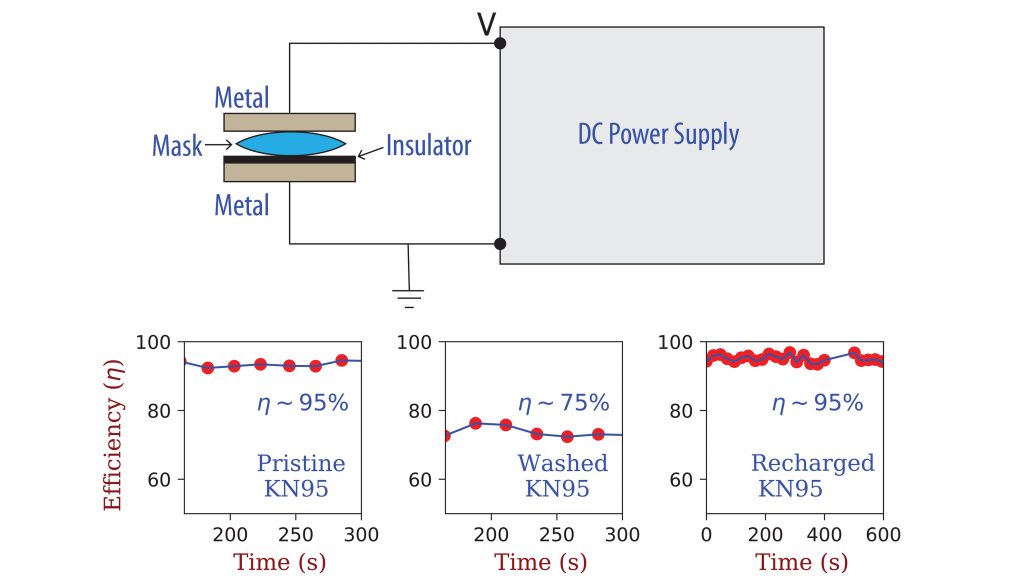From the Journal: Physics of Fluids
WASHINGTON, September 8, 2020 — N95 masks are a critical part of the personal protective equipment used by front-line health care workers. These masks achieve 95% efficiency at filtering out tiny 0.3-micron particles, while maintaining reasonable breathability, thanks to a layer of fine melt-blown polypropylene fibers incorporating electrical charges to attract particles.

Extended usage and decontamination provoked by severe supply shortages around the globe during the COVID-19 pandemic can easily remove the charges and degrade filtration efficiency.
In the journal Physics of Fluids, from AIP Publishing, researchers from India’s Tata Institute of Fundamental Research and Israel’s Technion-IIT share a method to restore the filtration efficiency of N95 masks to out-of-box levels — as long as the mask is not structurally compromised.
“Today, N95 masks are being worn by health care workers for extended periods,” said co-author Shankar Ghosh. “This gives rise to very humid conditions, and humidity is detrimental to electrostatics.”
During use, all electrostatics-based masks slowly lose their efficiency due to humidity.
“It’s much worse in a place like Mumbai during the Indian monsoon, where ambient humidity levels can reach more than 90%,” Ghosh said.
The group’s work exploits that, under high electric fields, the polypropylene conductivity is high, which makes introducing excess charges into the material possible by connecting it to a battery. When the charge source is switched off, the applied electrical field becomes zero, and the conductivity of the polypropylene drops effectively to zero. As a result, the added charge carriers immobilize, and the material remains charged.
The researchers discovered they could toss an N95 into a standard washing machine to clean it, which significantly reduces its filtration efficiency. They could then recharge it by sandwiching it between two electrodes at high voltage to recover its 95% efficiency.
“We’ve also shown a proof-of-concept construction of a battery-operated smart mask, where the lost charge gets replenished periodically by plugging the mask into a charging station — akin to how you would charge your smartphone,” Ghosh said.
The group believes its method to keep masks charged will lead to highly energy-efficient smart masks.
“Currents are in microamps, and the power requirement is extremely low, on the order of a milliwatt, so a compact and practical solution may soon be feasible,” said Ghosh.
Beyond this, their method will be useful for a variety of air filtration applications, such as HVAC or industrial filters.
###
Article Title
Recharging and rejuvenation of decontaminated N95 masks
Authors
Emroj Hossain, Satyanu Bhadra, Harsh Jain, Soumen Das, Arnab Bhattacharya, Shankar Ghosh, and Dov Levine
Author Affiliations
Tata Institute of Fundamental Research, Technion-IIT
